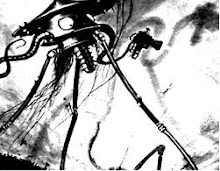Poor Consumer Choice Drives Rampant File Sharing Online
TorrentFreak has a great post up today about a new study from UK based Entertainment Media Research titled, "2008 Digital Entertainment Survey." The report states on page 209:
Pirates perceive legal sites don't have the range of content of illegal ones (70%) and take longer to acquire content (68%). That it is free is, of course, the main reason why piracy is so rife but perceptions of a lack of choice in legal sites is a contributory factor.The claim about content being free as the primary motivator is an assumption on part of the researchers, and they make no attempt to support that claim. And considering the next paragraph on page 209, the researchers actually discredit their claim:
Pirates are typically media heavy consumers and purchase considerable quantities of legal content in addition to unauthorised content. Nearly 2 out of 3 pirates claim they would pay for legal downloads if what they wanted was available.So, users of peer-to-peer file sharing systems are actually the industry's best customers. 67% of these individuals would be willing to pay for the content that they seek if it were available through legal means. I think that hardly qualifies the fact that current content on peer-to-peer systems is free as the primary reason for its popularity.
I'd bet that the "contributory factor" of lack of choice is probably more influential than content providers would like to think.
Finally, on page 13 of the report there is the evidence that 7 out of 10 peer-to-peer system users would stop using peer-to-peer file sharing if they were to receive a cease and desist letter from their ISP. In fact, the report even encourages the further use of such scare tactics:
All of this makes a more direct ISP warning strategy more attractive to discourage digital piracy. [emphasis in original]The report states that teenagers are most likely to be persuaded by such tactics (78% of males and 75% of females), which isn't surprising because I think teenagers are most likely to be influenced by perceived authority figures like an ISP.
Judging by this, I think it's probable that the misinformation scare campaigns from the RIAA and the MPAA are likely to continue or even get worse. It's unfortunate that these organizations insist on criminalizing their best customers at the detriment of their own bottom line. If copyright holders simply provided services that customers want -- DRM free, easily accessible content for a reasonable price -- then it seems that they'd have a large share of peer-to-peer users who'd prefer to purchase content through legal means.



No comments:
Post a Comment